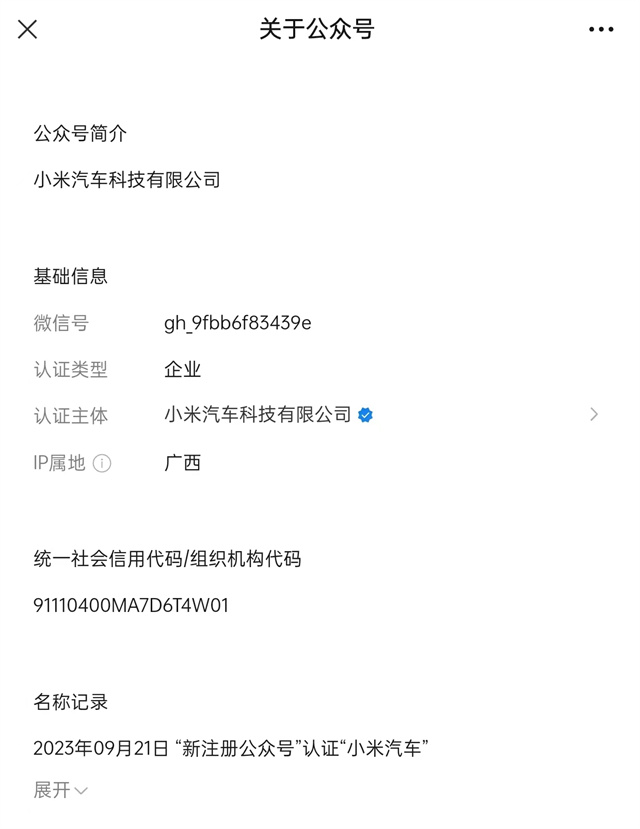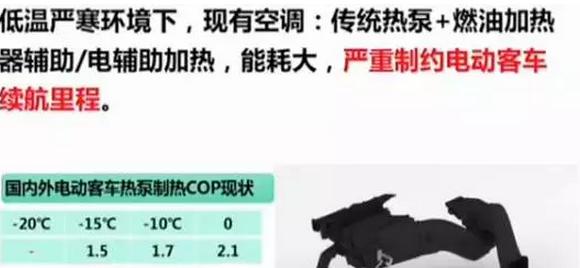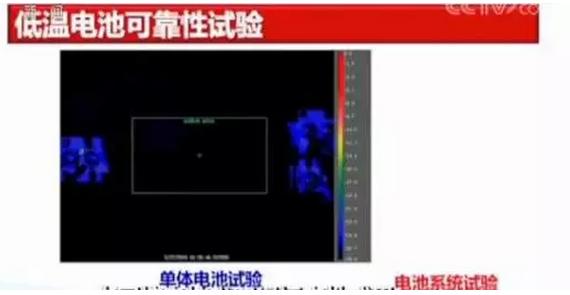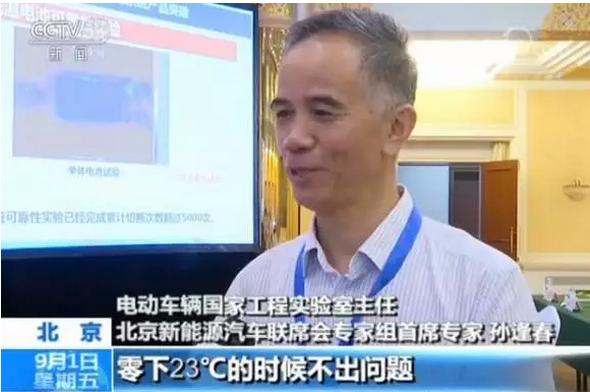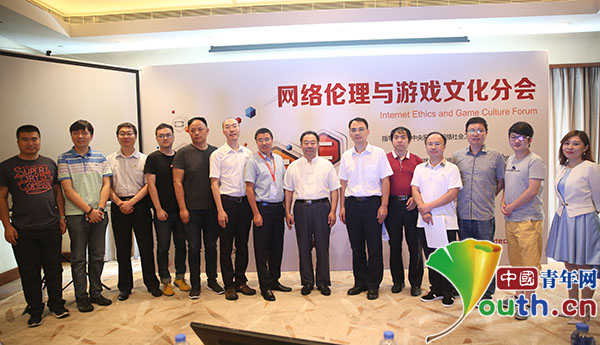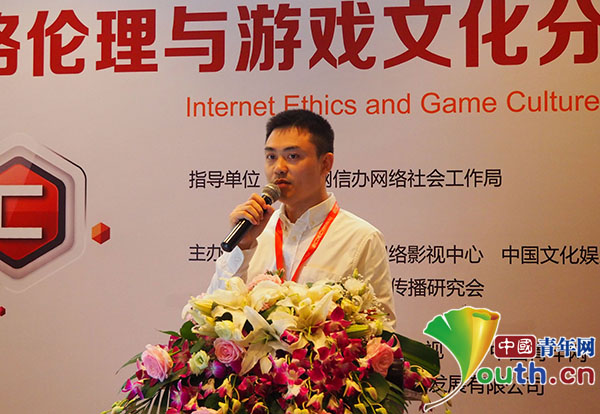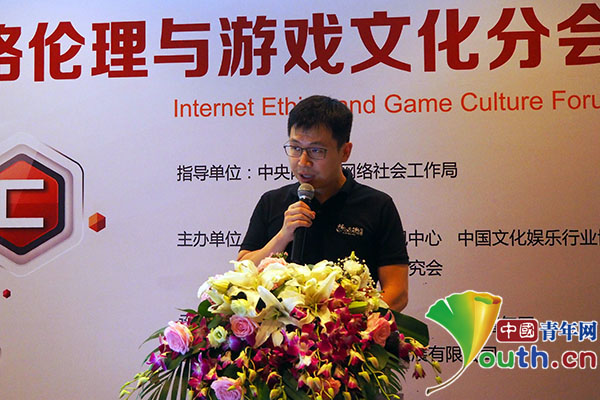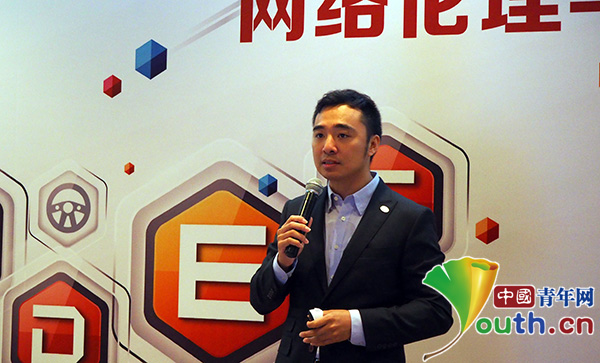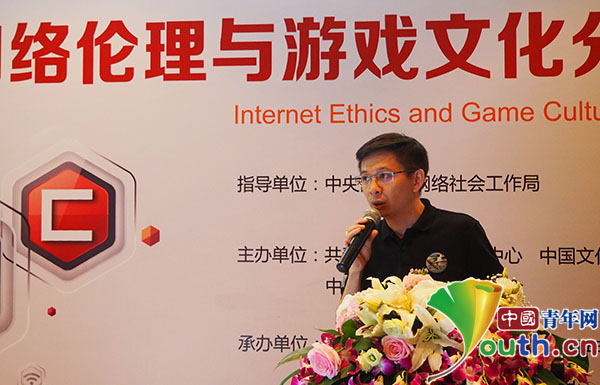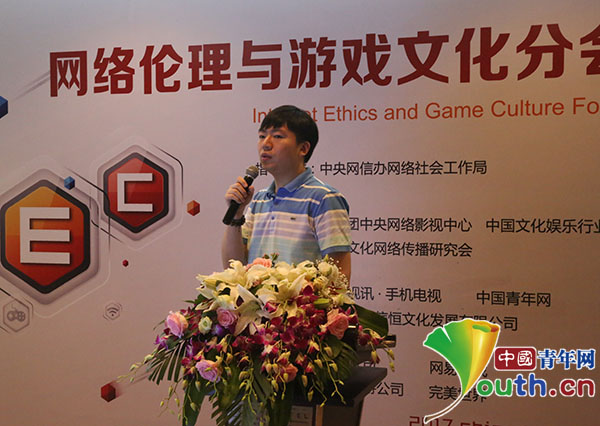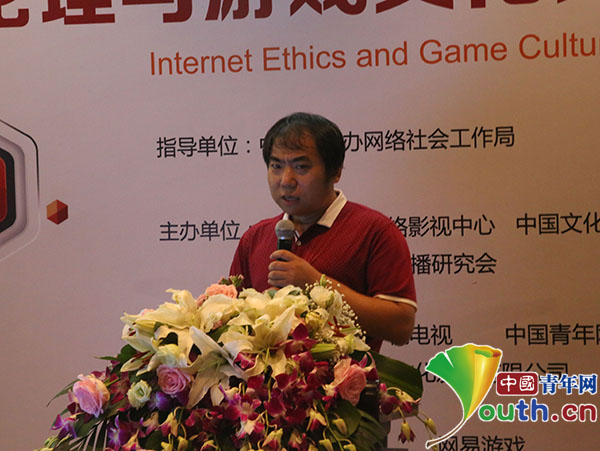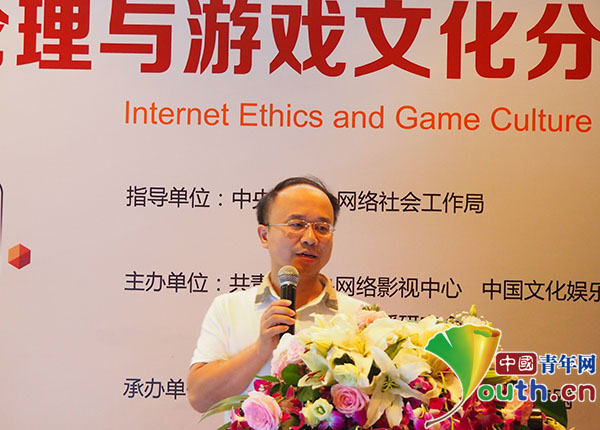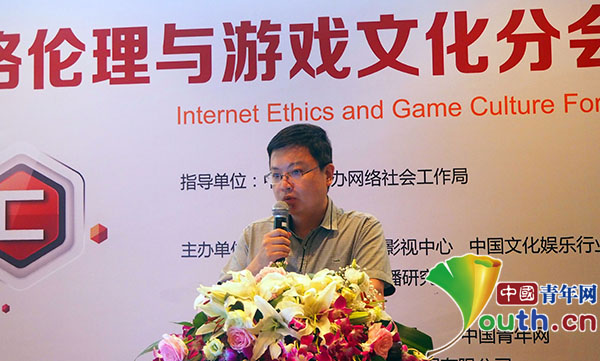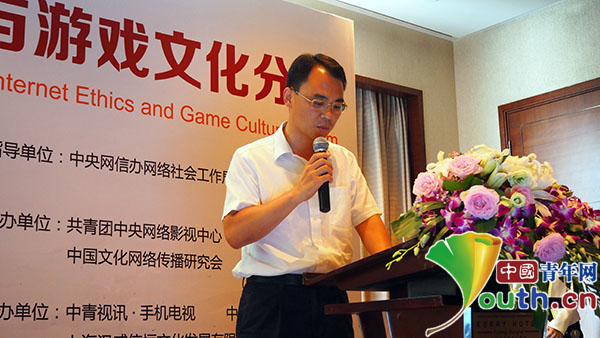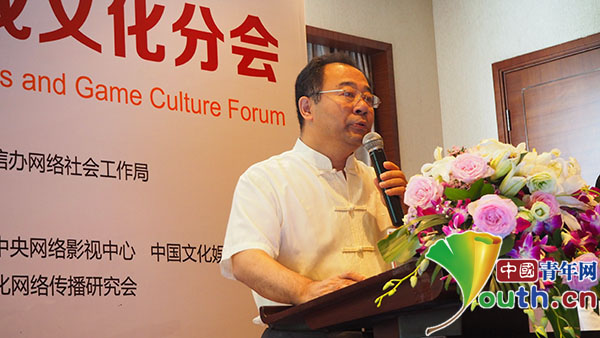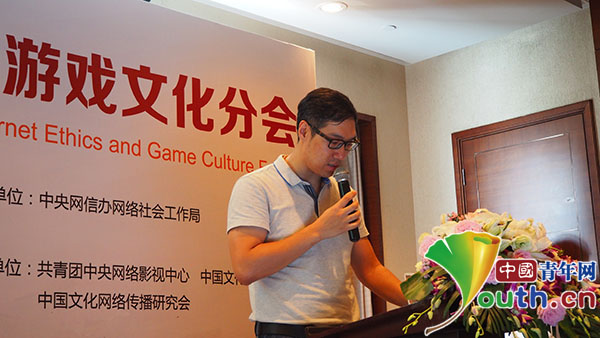1. (000027) Shenzhen Energy: Supplement to the proposal of the second extraordinary shareholders’ meeting in 2008.
On March 25, 2008, Shenzhen Energy received a letter from Shenzhen Energy Group Co., Ltd. (the controlling shareholder of the company, holding 63.74% of the company’s shares), requesting the second extraordinary shareholders’ meeting in 2008 to consider the Proposal on Bidding for the Land of Shenzhen Energy Headquarters Building.
According to relevant regulations, the company submitted the new proposal to the second extraordinary general meeting of shareholders held on April 7, 2008 for consideration.
2. (000034)SST Shentai: The second prompt for holding the shareholders’ meeting related to the share-trading reform on March 28th.
1. Convenor: the board of directors of the company.
2. Time for convening the extraordinary shareholders’ meeting and relevant shareholders’ meeting:
On-site meeting time: Friday, March 28th, 2008, 9:00-11:30.
Online voting time: March 26th, 2008-March 28th, 2008.
Among them, the specific time for online voting through the trading system of Shenzhen Stock Exchange is:
From March 26th, 2008 to March 28th, 2008, every trading day is from 9: 30 to 11: 30 and from 13: 00 to 15: 00; It ended at 15:00 on March 28th, 2008.
The specific time for voting through the Internet is from 9: 30 on March 26th, 2008 to 15:00 on March 28th, 2008.
3. date of record: 24 March 2008
4. Site meeting place: meeting room of Shenzhen Huabao (Group) Feed Co., Ltd., northwest of the intersection of National Highway 107 and Xixiang Avenue, Baoan District, Shenzhen.
5. Meeting mode: combining on-site voting with online voting.
6. Matters to be considered at the meeting: Reform Plan of the Company’s Non-tradable Shares
3. (000035)ST Kejian: The board of directors passed the proposal of the company to carry out major asset restructuring and purchase assets through non-public offering of shares.
The 10th (temporary) meeting of the 4th Board of Directors of ST Kejian was held on March 24th, and the following proposals were considered and passed:
I. Proposal on the Company Meeting the Conditions for Non-public Offering of Shares;
2. Proposal on the Company’s Major Asset Restructuring and Non-public Offering of Shares to Purchase Assets;
3. To request the shareholders’ meeting to approve the proposal that zhu zhiping and his concerted actions are exempted from increasing the company’s shares by way of offer;
IV. "About the signing of the company with the Debt Committee, Kejian Group, Zhixiong Electronics, Tongli Company and Mr. Hao Jianxue"<框架协议>Proposal ";
V. About the signing of the Company with zhu zhiping, Ji Lisong, Cong Naikang and Tongli Company
VI. Proposal on Requesting the General Meeting of Shareholders to authorize the Board of Directors to handle matters related to major asset restructuring and non-public offering;
VII. Proposal on Submitting to the General Meeting of Shareholders for deliberation and approval on amending the Articles of Association;
VIII. Proposal on Temporarily Not Convening the Company’s General Meeting of Shareholders.
The company will hold another meeting of the board of directors to make supplementary resolutions on the above-mentioned related matters, and announce the time for convening the shareholders’ meeting separately.
4. (000035)ST Kejian: The first extraordinary general meeting of shareholders in 2008 was held on April 22nd.
1. Convening time: April 22nd, 2008 (Tuesday) at 1: 30pm.
2. Venue: Meeting room on the second floor of Kejian Building, Gongye Sixth Road, Shekou, Shenzhen.
3. Convenor: the board of directors of the company.
4. Convening method: on-site voting.
5. date of record: April 15, 2008
6. Matters to be considered at the meeting:
(1) Proposal on electing Mr. Du Changxi as the director of the fourth board of directors of the company;
(2) Proposal on reappointing Wuhan Zhonghuan Certified Public Accountants Co., Ltd. as the company’s financial auditing unit in 2007.
5. (000157) Zoomlion: The board of directors agreed to acquire the equity of Shaanxi Xinhuanggong Machinery Co., Ltd. and increase its capital.
The third interim meeting of the third board of directors of Zoomlion in 2008 was held on March 25th, and the following resolutions were passed:
1. Proposal on Acquisition of the Equity of Shaanxi Xinhuanggong Machinery Co., Ltd.;
2. Proposal on Capital Increase of Shaanxi Xinhuanggong Machinery Co., Ltd.;
III. Proposal on Authorizing the Chairman of the Board of Directors to Handle Stock Purchase, Capital Increase and Other Related Matters.
6. (000400) Xu Ji Electric: Main financial indicators and distribution plan of 2007 annual report.
I. Main financial indicators of the 2007 annual report
1. Earnings per share (RMB) 0.3066.
2. Net assets per share (RMB) 5.6331
3. ROE (%) 5.44
2. Send 1 yuan for every 10 shares (including tax).
7. (000421) North Nanjing: Major Events
In view of the background of national energy conservation and emission reduction policy, Changzhou Saide Thermal Power Co., Ltd., a holding subsidiary of Nanjing Zhongbei Holding Company, is facing the closure of power business. As Changzhou Saide is a Sino-foreign cooperative enterprise, the company is actively communicating and coordinating with relevant government departments on the above-mentioned power business shutdown and asset disposal, so as to avoid or reduce the possible impact on the company’s operating performance and safeguard shareholders’ rights and interests.
8. (000429) Guangdong Expressway A: Major events, the company’s shares will be suspended from March 26th.
Guangdong Expressway A is planning major asset restructuring matters, and will provide policy consultation and scheme demonstration to relevant departments within five working days after the publication of this announcement, so there are still uncertainties in related matters.
In order to protect the interests of investors and avoid significant impact on the company’s stock price, the company’s stock was suspended from March 26, 2008 upon the company’s application.
9. (000488) Chenming Paper Co., Ltd.: It intends to continue to provide guarantee for the relevant holding subsidiaries to apply for the comprehensive credit line of RMB in 2008.
On March 24, 2008, the sixth meeting of the fifth board of directors of Chenming Paper reviewed and passed the "Proposal on Providing Guarantee for Holding Subsidiaries to Apply for Bank Credit Line". The 2007 annual credit guarantee provided by the company for its holding subsidiaries has expired one after another. In order to ensure the normal production and operation of each holding subsidiary, the company intends to continue to provide guarantee for the relevant holding subsidiaries to apply for the comprehensive credit line of RMB in 2008, with a total guarantee amount of 2.25 billion yuan and a term of one year.
10. (000502) Lvjing Real Estate: Main financial indicators and distribution plan of the 2007 annual report.
I. Main financial indicators of the 2007 annual report
1. Earnings per share (RMB) 0.0239
2. Net assets per share (RMB) 1.08.
3. ROE (%) 2.21
Second, no distribution and no increase
11. (000530) Great Cold B: Abnormal fluctuations in stock trading.
The trading price of Dalang B stock was abnormal in the two consecutive trading days from March 24 to 25, 2008, which was a stock price change.
At present, the company does not have any matters or information that should be disclosed but not disclosed.
12. (000543) Wanneng Electric Power: Main financial indicators and distribution plan in 2007 annual report.
I. Main financial indicators of the 2007 annual report
1. Earnings per share (RMB) 0.08
2. Net assets per share (RMB) 6.82
3. ROE (%) 1.21
2. Pay 0.85 yuan (including tax) for every 10 shares.
13. (000543) Wanneng Electric Power: The 2007 Annual General Meeting of Shareholders was held on April 29th.
1. Meeting time: 9:00 am on Tuesday, April 29th, 2008.
2. Meeting place: Conference Room 5, 4th floor, Wanneng Building, No.99 Maanshan Road, Hefei, Anhui.
3. Convenor of the meeting: the board of directors of the company.
4. Method of meeting: On-site voting.
5. date of record: April 21, 2008
6. Matters considered at the meeting: Report on the Company’s Profit Distribution Plan for 2007, etc.
14. (000559) Wanxiang Qian Chao: The annual general meeting of shareholders passed the profit distribution plan for 2007.
The 2007 Annual General Meeting of Shareholders of Wanxiang Qian Chao was held on March 25th, 2008, and the following resolutions were passed:
1. Work Report of the Board of Directors in 2007.
2. Work Report of the Board of Supervisors in 2007.
3, 2007 annual financial statements.
4. Profit distribution plan for 2007.
5. Report on the implementation of related party transactions in 2007 and proposal on the forecast of daily related party transactions in 2008.
15. (000565) Chongqing Three Gorges A: The board of directors agreed to provide a one-year working capital loan guarantee of 20 million yuan for the holding subsidiary of Three Gorges Yingli Chemical.
The Eighth Board of Directors of the Fifth Session of Chongqing Three Gorges A was held on March 24th, and the proposal to provide a one-year working capital loan guarantee of 20 million yuan for Chongqing Three Gorges Yingli Chemical Co., Ltd., a holding subsidiary of the company, was reviewed and passed.
Chongqing Three Gorges Yingli Chemical Co., Ltd. is a holding subsidiary of the company. Its newly-built 50,000-ton glycine/year project is progressing normally and has entered the trial production stage. In order to ensure the completion and production of the project, the company decided to apply for a one-year working capital loan of RMB 20 million from China Merchants Bank Chongqing Branch Jiulongpo Sub-branch, and the company provided guarantee for it.
16. (000568) LU ZHOU LAO JIAO CO.,LTD: The performance in the first quarter of 2008 is expected to increase by 250%-300% year-on-year.
LU ZHOU LAO JIAO CO.,LTD predicted that the accumulated net profit from January to March 2008 would increase by 250% to 300% compared with the same period of last year, and the net profit attributable to shareholders of listed companies would also increase by more than 250% to 300% compared with the same period of last year.
The reasons are:
1. The first quarter is the traditional peak season for liquor sales, and the company arranged ahead of schedule. The leading products such as Guojiao 1573 and Luzhou Laojiao Tequ have a good sales situation and the sales volume has increased rapidly;
2. As of March 31, 2008, the company held 353,164,800 shares of Huaxi Securities (accounting for 34.86% of the total shares of Huaxi Securities), an increase of 333,164,800 shares compared with the same period of last year, so the investment income increased accordingly.
17. (000594) Tianjin Hongfeng: Shenzhen Guoheng sold 8,907,300 shares of the company again.
From March 20, 2008 to March 25, 2008, Shenzhen Guoheng Industrial Development Co., Ltd., a shareholder of Tianjin Hongfeng, has sold a total of 8,907,300 shares of the company through listing on Shenzhen Stock Exchange, accounting for 1.59% of the total shares of the company.
As of March 25th, 2008, Shenzhen Guoheng still holds 80,686,613 shares (accounting for 14.38% of the total shares of the company).
18. (000617) Petroleum firewood: main financial indicators and distribution plan of the 2007 annual report.
I. Main financial indicators of the 2007 annual report
1. Earnings per share (RMB) 0.41
2. Net assets per share (RMB) 2.81
3. ROE (%) 14.52
2. Send 0.2 yuan for every 10 shares (including tax).
19. (000625) Changan Automobile: The 2007 Annual General Meeting of Shareholders was held on April 25th.
(1) Convening time: 9:00 am on April 25th, 2008.
(II) Venue: Multimedia Meeting Room of Chang ‘an Science and Technology Building, No.260 Jianxin East Road, Jiangbei District, Chongqing.
(3) Convenor: the board of directors of the company.
(4) Convening method: on-site voting method.
(5) date of record: April 18, 2008.
(VI) Matters to be considered at the meeting: 2007 annual report and summary, profit distribution in 2007 and plan for converting capital reserve into share capital, etc.
20. (000625) Changan Automobile: Main financial indicators and distribution plan in 2007 annual report.
I. Main financial indicators of the 2007 annual report
1. Earnings per share (RMB) 0.34
2. Net assets per share (RMB) 3.89
3. ROE (%) 8.81
2. Transfer 2 shares for every 10 shares.
21. (000631)S*ST Lanbao: The annual report for 2007 will be disclosed before March 29th.
S*ST Lanbao’s 2007 financial audit was carried out ahead of schedule, and the audit report will be completed around March 27th, 2008. Therefore, the company’s original time to disclose the 2007 annual report on April 25th, 2008 will be advanced to March 29th, 2008.
22. (000652) TEDA Co., Ltd.: Main financial indicators and distribution plan of the 2007 annual report.
I. Main financial indicators of the 2007 annual report
1. Earnings per share (RMB) 0.35
2. Net assets per share (RMB) 1.93.
3. ROE (%) 18.24
Two, send 3 shares for every 10 shares, and send 0.34 yuan (including tax) to increase 1 share.
23. (000652) TEDA: The 2007 annual general meeting of shareholders was held on April 28th.
1. On-site meeting time: 2: 00pm on Monday, April 28th, 2008, with a duration of half a day;
Online voting time: the online voting time through the trading system is from 9: 30 am to 11: 30 am and from 13: 00 pm to 15: 00 pm on April 28, 2008; The specific time for voting through the Internet voting system of Shenzhen Stock Exchange is from 15:00 pm on April 27th, 2008 to 15:00 pm on April 28th, 2008.
2. Venue: Tianjin Tianma International Club Co., Ltd. (address: next to Tianjin Yangliuqing Golf Club, west of Jingfu Highway, Shuangkou Town, Beichen District, Tianjin);
3. Convenor: the board of directors of the company;
4. Convening method: combining on-site method with online voting;
5. date of record: April 21, 2008;
6. Matters considered at the meeting: the company’s profit distribution plan for 2007, and the proposal of the company to subscribe for new shares with idle funds in 2008.
24. (000655) Jinling Mining: The non-public offering of shares to purchase assets was approved by the state-owned assets management department.
Jinling Mining recently received a reply from the State-owned Assets Supervision and Administration Commission of Shandong Provincial People’s Government, agreeing that the company will issue no less than 30 million shares and no more than 50 million shares in a non-public manner to purchase auxiliary assets such as Zhaokou Branch Mine, power plant and some land workshops of Shandong Jinling Iron Mine.
25. (000671) Sunshine Development: The 2007 Annual General Meeting of Shareholders was held on April 17th.
1. Convenor of the meeting: the board of directors of the company;
2. Meeting time: 9:30 am on Thursday, April 17th, 2008;
3. Meeting place: Meeting room of Sunshine Holiday Hotel, No.26 Gao Qiao Road, Fuzhou;
4. Method of convening the meeting: voting on the spot;
5. date of record: April 10, 2008;
6. Matters considered at the meeting: The Full Text of the Company’s 2007 Annual Report and its Summary, and the Proposal on the Company’s 2007 Profit Distribution and Converting the Provident Fund into Share Capital, etc.
26. (000671) Sunshine Development: Main financial indicators and distribution plan of the 2007 annual report.
I. Main financial indicators of the 2007 annual report
1. Earnings per share (RMB) 0.18
2. Net assets per share (RMB) 2.71
3. ROE (%) 6.74
2. Pay 0.35 yuan (including tax) for every 10 shares.
27. (000677) Shandong Hailong: The performance in the first quarter of 2008 increased by 50%-150% in advance.
Shandong Hailong expects that the net profit in the first quarter of 2008 will increase substantially compared with the same period of last year, and it is expected to increase by 50%-150% in the same direction.
The reasons are as follows: in the first quarter of 2008, the company was affected by technological upgrading, and the sales of new products increased; In addition, the company’s income from intangible assets and the reduction of income tax rate are affected.
28. (000693)S*ST Juyou: The board of directors agreed to hire Zhongyuan International Assets Appraisal Co., Ltd. as an asset appraisal agency.
The 24th Board of Directors of the 6th Session of S*ST Juyou held a meeting by fax on March 25th, 2008, and passed the Proposal on Hiring Zhongyuan International Assets Appraisal Co., Ltd. as an Assets Appraisal Agency.
29. (000709) Tangshan Iron and Steel Co., Ltd.: The performance in the first quarter of 2008 is expected to increase by 50%-100%.
In the first quarter of 2008, the net profit attributable to the owner of the parent company of Tangshan Iron and Steel Co., Ltd. is expected to increase by 50%-100% year-on-year.
The reasons are:
1. The company increased the cooperation scope of strategic resources and reduced the procurement cost of main raw materials.
2. The second phase project of Tangshan Medium Plate Co., Ltd., a holding subsidiary of the company, was put into operation in the first quarter of 2008, which increased the production capacity and benefit.
3. The company strives to optimize the variety structure and increase the proportion of high value-added products.
4. The company vigorously carried out energy conservation and emission reduction, developed circular economy, deepened benchmarking and tapped potential, and optimized various major economic and technical indicators.
30. (000739) Prokangyu: Main financial indicators and distribution plan of the 2007 annual report.
I. Main financial indicators of the 2007 annual report
1. Earnings per share (RMB) 0.1247
2. Net assets per share (RMB) 2.78
3. ROE (%) 4.27
Second, no distribution and no increase
31. (000819) Yueyang Xingchang: Progress of New Drug Evaluation of Gastropathy Vaccine
The Drug Evaluation Center of the State Food and Drug Administration held a drug evaluation consultation meeting in Beijing from March 20 to 22, 2008, and conducted an expert evaluation consultation on the "oral recombinant Helicobacter pylori vaccine" (gastropathy vaccine) declared by Chongqing Kangwei Biotechnology Co., Ltd., a subsidiary of Yueyang Xingchang.
The review consultation meeting ended on schedule on March 22nd. According to the convention of the consultation meeting, its opinions have not been officially informed to Chongqing Kangwei and announced. According to the website of Drug Evaluation Center of State Food and Drug Administration (website: http://www.cde.org.cn), at present, the consultation and discussion of gastropathy vaccine has ended and entered the stage of "post-consultation review", and "five biological products review rooms are conducting comprehensive evaluation according to the consultation opinions".
32. (000819) Yueyang Xingchang: 40,791,244 restricted shares were listed and circulated on March 28th.
The number of tradable shares listed under this restricted sale condition is 40,791,244 shares.
The circulating date of the tradable shares with limited sale conditions is March 28, 2008.
33. (000835) Sichuan Shengda: The board of directors approved the proposal of lending 50 million yuan to hengfeng bank Chengdu Branch, and appointed Chang Feng as the executive deputy general manager of the company.
The 24th meeting of the 5th Board of Directors of Sichuan Shengda was held on March 25th, 2008, and the following resolutions were passed:
I. Proposal on the Company’s loan of RMB 50 million to hengfeng bank Chengdu Branch.
2. To appoint Mr. Chang Feng as the executive deputy general manager of the company.
34. (000851) Gaohong Shares: The 2007 Annual General Meeting of Shareholders was held on April 28th.
1. Convening time: 9: 00 am on April 28th, 2008.
2. venue: meeting room on the third floor of the main building of Datang Telecom Group, No.40 Xueyuan Road, Haidian District, Beijing.
3. Convening method: on-site voting method.
4. Convenor: Board of Directors
5. date of record: April 21, 2008
6. Main agenda of the meeting: Proposal of the Company’s 2007 Annual Report and Summary, Proposal of the Company’s 2007 Annual Profit Distribution, etc.
35. (000851) Gaohong Co., Ltd.: Main financial indicators and distribution plan of the 2007 annual report.
I. Main financial indicators of the 2007 annual report
1. Earnings per share (RMB) 0.04
2. Net assets per share (RMB) 1.93.
3. ROE (%) 2.12
Second, no distribution and no increase
36. (000897) Jinbin Development: Main financial indicators and distribution plan of the 2007 annual report.
I. Main financial indicators of the 2007 annual report
1. Earnings per share (RMB) 0.0643.
2. Net assets per share (RMB) 1.87.
3. ROE (%) 3.43
Two, every 10 shares of 0.2 yuan (including tax) increased by 4 shares.
37. (000897) Jinbin Development: The performance in the first quarter of 2008 is expected to increase by 50%-100%.
Jinbin Development predicts that the net profit in the first quarter of 2008 will increase by 50%-100% year-on-year.
In March, 2008, the company received a penalty of RMB 35.286 million from Tianjin TEDA Investment Holding Co., Ltd., which had an impact on the company’s operating performance in the first quarter.
38. (000897) Jinbin Development: The 2007 Annual General Meeting of Shareholders was held on April 18th.
(1) Meeting time: 10:00 am on Friday, April 18th, 2008.
(II) Meeting place: meeting room on the 11th floor of the company.
(3) Convenor: the board of directors of the company.
(4) Meeting method: voting on the spot.
(5) date of record: April 11, 2008.
(VI) Matters considered at the meeting: Proposal on the Company’s Profit Distribution Plan for 2007, etc.
39. (000901) Aerospace Science and Technology: The disclosure of the 2007 annual report was postponed to April 23rd.
Because the annual financial audit of Aerospace Science and Technology could not be completed within the expected time, the disclosure time of the company’s 2007 annual report was postponed to April 23, 2008 with the approval of Shenzhen Stock Exchange.
40. (000903) Power in the Cloud: Supplement to the 2007 Annual Report
Yunnei Power disclosed its 2007 annual report and abstract on March 8, 2008. In order to enable investors to know more about the company in detail, we now make a supplementary announcement on the relevant contents of the company’s 2007 annual report and abstract.
41. (000916) North China Expressway: The 2007 Annual General Meeting of Shareholders was held on April 18th.
1. Meeting time: 10:00 am on Friday, April 18th, 2008.
2. Meeting place: A301 meeting room of the company.
3. Convenor: the board of directors of the company.
4. Method of meeting: On-site voting by secret ballot.
5. date of record: April 10th, 2008.
6. Matters considered at the meeting: profit distribution plan for 2007, etc.
42. (000916) North China Expressway: Main financial indicators and distribution plan in 2007 annual report.
I. Main financial indicators of the 2007 annual report
1. Earnings per share (RMB) 0.286.
2. Net assets per share (RMB) 3.46
3. ROE (%) 8.27
2. Send 1.6 yuan for every 10 shares (including tax).
43. (000917) Dianguang Media: 2007 annual performance report, with earnings per share of 0.33 yuan.
Main financial data and indicators in 2007:
Earnings per share (RMB) 0.33
Return on net assets (%) 6.52
Net assets per share (RMB) 5.14
44. (000917) Dianguang Media: The extraordinary shareholders’ meeting passed the proposal to provide financial support for the holding subsidiaries.
The first extraordinary shareholders’ meeting of Dianguang Media in 2008 was held on March 25th, and the Proposal on Providing Financial Support for Hunan Xinfengyuan Investment Co., Ltd., a holding subsidiary, was passed.
45. (000931) Zhongguan Village: Major Litigation Progress
Beijing Plastics Trading Co., Ltd. and Beijing Longtianlu Real Estate Development Co., Ltd. sued Beijing Zhongguancun Development and Construction Co., Ltd., a holding subsidiary of Zhongguan Village, for the dispute over the infringement of equity transfer. The plaintiffs Plasticizing Company and Longtianlu Company applied to the court to withdraw the lawsuit. The court allowed to withdraw the lawsuit after examination, and the case acceptance fee of 61,866,500 yuan was borne by Plastics Company and Longtianlu Company. This case will not affect the company’s performance in 2007 and 2008.
46. (000931) Zhongguan Village: Progress of Major Events
After deliberation and approval at the second interim meeting of the third board of directors of Zhongguan Village in 2008, the company decided to suspend the sale of the equity of Beijing Zhongguancun Sihuan Pharmaceutical Development Co., Ltd. and applied to the China Securities Regulatory Commission to withdraw the Report on the Sale of Major Assets and Related Transactions. As the largest shareholder of the company, Pengtai Investment agreed to the company’s decision to suspend the sale of Sihuan Co., Ltd., and promised to buy Sihuan Co., Ltd. again at no less than 400 million yuan when the conditions are ripe. If other potential investors participate in the bidding, the highest bidder will win the bid.
On March 25th, 2008, the company received the relevant notice from the China Securities Regulatory Commission, and the China Securities Regulatory Commission decided to terminate the examination of the company’s application.
47. (000936) Huaxi Village: The board of directors agreed to acquire 75% equity of Jiangyin Chengyi Storage Co., Ltd. owned by Chenghua International.
The 24th Extraordinary Meeting of the Third Board of Directors of Huaxi Village was held on March 25th, and the Proposal on the Company’s Acquisition of 75% Equity of Jiangyin Chengyi Storage Co., Ltd. owned by Chenghua International Co., Ltd. was reviewed and approved.
48. (000973) Fosu shares: lease matters.
On March 21st, 2008, Fosu Co., Ltd. signed the Workshop and Equipment Lease Contract with Wuxi Zhenghan Iron and Steel Trading Co., Ltd., and the company plans to lease the 9,189.69 square meters workshop and a batch of equipment (including power supply facilities) located at No.226 Fenglin Road, Chancheng District, Foshan City to Zhenghan Company for use.
The rent is 1.1 million yuan per year and 1.1 million yuan per year (that is, 91,666.67 yuan/month).
The lease term is five years from April 1, 2008 to March 31, 2013.
This transaction does not constitute a connected transaction.
49. (002001) Xinhecheng: On March 28th, an online briefing on the 2007 annual report was held.
Xinhecheng will hold the 2007 annual report briefing session on the online platform provided by Shenzhen Securities Information Co., Ltd. from 15: 00 to 17: 00 on Friday, March 28, 2008. This annual report briefing session will be held by remote network, and investors can visit Panorama: http://irm.p5w.net to participate in the annual report briefing session.
Present at the briefing session of this annual report were Mr. Hu Baifan, Chairman of the Company, and others.
50. (002030) Daan Gene: Main financial indicators and distribution plan of the 2007 annual report.
I. Main financial indicators of the 2007 annual report
1. Earnings per share (RMB) 0.28
2. Net assets per share (RMB) 2.43
3. ROE (%) 11.49
2. Send 2 shares for every 10 shares, and send 1.3 yuan (including tax) to increase 4 shares.
51. (002030) Daan Gene: The 2007 Annual General Meeting of Shareholders was held on April 16th.
(1) Meeting time: starting at 9:30 am on April 16th, 2008.
(II) Venue: Lecture Hall, 1st floor, No.19 Xiangshan Road, Guangzhou Economic and Technological Development Zone, Guangdong Province.
(III) Convening method: on-site convening.
(4) date of record: April 9, 2008
(V) Agenda of the meeting: Proposal on Profit Distribution and Capitalization of Capital Reserve Fund in 2007, Annual Report of 2007 and its summary, etc.
52. (002036) Yike Technology: The board of directors agreed to invest in the establishment of Ningbo Hanma Industrial Product Development Co., Ltd.
The fifth meeting of the third board of directors of Yike Technology was held on March 25th, and it was agreed that the company and the holding company-Hanma Industrial Investment Holding Co., Ltd. jointly invested to establish Ningbo Hanma Industrial Product Development Co., Ltd. The registered capital of Ningbo Hanma Company is RMB 18 million, of which RMB 9 million is contributed by the company, accounting for 50% of the registered capital; Hanma Holdings invested 9 million yuan, accounting for 50% of the registered capital.
53. (002048) Ningbo Huaxiang: The performance in the first quarter of 2008 is expected to increase by 60%-90%.
Ningbo Huaxiang’s estimated performance in the first quarter of 2008: the net profit attributable to the owners of the parent company increased by 60%-90% compared with the same period of last year.
The reasons are:
1. The domestic passenger car industry has maintained a rapid development. The company’s main customers, Shanghai Volkswagen, FAW-Volkswagen, Shanghai GM and FAW Toyota, rank in the top ten in sales volume, and the sales volume of the company’s supporting parts has also increased.
2. The products supplied by the company have developed in the direction of assembly and modular supply. The batch supply of assembly finished products has improved the matching value of bicycles, thus driving the rapid growth of the company’s sales revenue and profitability.
3. The company’s related foreign investment in 2007 generated benefits.
54. (002064) huafeng spandex: The transaction fluctuated abnormally.
As of March 25th, 2008, the deviation of daily closing price of huafeng spandex stock has reached 20% in three consecutive trading days, which is an abnormal fluctuation of stock trading.
The company’s net profit in the first quarter of 2008 is expected to drop by less than 50% compared with the same period of last year. Except for the above matters, the company’s business activities are normal, and there is no information that should be disclosed but not disclosed at present.
55. (002065) Donghua Hechuang: The Board of Directors adopted the working rules for the review of the annual report of the Audit Committee of the Board of Directors.
The third meeting of the third board of directors of Donghua Hechuang was held on March 25th, 2008, and the following resolutions were passed:
1. Measures for the Administration of the Company’s Shares Held by Directors, Supervisors and Senior Management and Their Changes;
2. Working Rules for Review of the Annual Report of the Audit Committee of the Board of Directors of the Company;
3. Work System for Annual Reports of Independent Directors of the Company.
56. (002078) Sun Paper: The board of directors passed the proposal of external guarantee of the company’s holding subsidiary.
The 13th Board of Directors of the third session of Sun Paper was held on March 25th, and the Proposal on External Guarantee of the Company’s Holding Subsidiary was reviewed and approved.
57. (002083) Vosges shares: The annual general meeting of shareholders adopted the company’s annual report for 2007 and its summary.
The 2007 annual general meeting of shareholders of Vosges was held on March 25th, and the following proposals were reviewed and passed:
1. Work Report of the Board of Directors for 2007;
2. Work Report of the Board of Supervisors in 2007;
3. Annual Report of the Company in 2007 and its Summary;
4. Report on the Company’s 2007 Annual Financial Statements;
5. Proposal on the Company’s Profit Distribution in 2007 and Converting Capital Reserve into Share Capital;
6. Proposal on Determining Allowances for Independent Directors;
7. Proposal on Remuneration of Directors, Supervisors and Senior Management;
8. Proposal on Planning to Apply to Agricultural Development Bank for Comprehensive Credit of not more than 1 billion yuan;
9. Proposal on Providing a Total Guarantee of RMB 1.2 billion for Shandong Vosges Photovoltaic Technology Co., Ltd., a wholly-owned subsidiary;
10. Proposal on Renewing the Appointment of PricewaterhouseCoopers Zhongtian Certified Public Accountants.
58. (002093) Guomai Technology: external guarantee of holding subsidiary.
Guomai Zhongxun Network Technology (Hong Kong) Co., Ltd., a wholly-owned subsidiary of Guomai Zhongxun Network Technology Co., Ltd., a holding subsidiary of Guomai Technology, applied to CITIC Ka Wah Bank for a loan with a total amount of no more than US$ 6 million for a period of no more than eight months.
On March 25th, 2008, Guomai Zhongxun provided guarantee for the loan that Guomai Zhongxun (Hong Kong) applied for with a total amount of no more than USD 6 million. As of the date of this announcement, Guomai Zhongxun provided guarantee for the loan of Guomai Zhongxun (Hong Kong) with a total amount of USD 14 million (USD: RMB =1:7.09), equivalent to RMB 99.26 million, accounting for the company (including holding subsidiaries).
59. (002096) Nanling civil explosion: main financial indicators and distribution plan of 2007 annual report.
I. Main financial indicators of the 2007 annual report
1. Earnings per share (RMB) 0.635.
2. Net assets per share (RMB) 4.74
3. ROE (%) 13.39
Two, every 10 shares to send 3 yuan (including tax) to increase by 5 shares.
60. (002096) Nanling Civil Explosion: The 2007 Annual General Meeting of Shareholders was held on April 21st.
(1) Time of the meeting: 9:00 am on April 21st, 2008.
(II) Form of meeting: on-site meeting.
(3) Place of the meeting: Nanhua Hotel, Yongzhou City, Hunan Province.
(4) date of record: April 16, 2008
(5) Convenor of the meeting: the board of directors of the company.
(VI) Matters to be considered: Plan for Profit Distribution and Capital Reserve Fund Transfer to Share Capital in 2007, Annual Report and Summary of Annual Report of the Company in 2007, etc.
61. (002123) Rongxin shares: 23,201,961 shares issued before the initial public offering were listed and circulated on March 28th.
The number of shares issued before the initial public offering of Rongxin was 24,953,528, and the actual number of shares available for listing and circulation was 23,201,961. The listing and circulation date was March 28, 2008.
62. (002132) Stellar Technology: Prompt for Holding the 2007 Annual General Meeting of Shareholders on March 30th.
1. Meeting time: 9:00 am on March 30th, 2008 (Sunday).
2. Meeting place: company meeting room.
3. Convenor of the meeting: the board of directors of the company.
4. Mode of meeting: on-site meeting.
5. date of record: March 26th, 2008.
6. Meeting topics: 2007 Annual Report and Summary of the Company, 2007 Profit Distribution Plan of the Company, etc.
63. (002133) Guangyu Group: 12 million yuan was awarded by the government.
According to the relevant documents issued by Shangcheng District People’s Government of Hangzhou on February 3, 2008, in order to encourage the successful listing of Guangyu Group, the government gave the company a listing reward and support of 12 million yuan. The company has recently received this fund.
64. (002144) Hongda Warp Knitting: Notice of Holding the 2007 Annual General Meeting of Shareholders on April 18th.
(1) Meeting time: 2 pm on Friday, April 18th, 2008.
(2) date of record: April 11, 2008
(III) Meeting place: conference room on the 10th floor of Hongda Building, No.218 Haizhou Road, Haining.
(IV) Method of convening the meeting: voting on the spot.
(5) Convenor of the meeting: the board of directors of the company.
(VI) Matters considered at the meeting: Company II? ? Full text and abstract of seven-year annual report, Company II? ? Seven-year profit distribution plan of the company, etc.
65. (002144) Hongda Warp Knitting: Main financial indicators and distribution plan of 2007 annual report.
I. Main financial indicators of the 2007 annual report
1. Earnings per share (RMB) 0.23
2. Net assets per share (RMB) 2.75.
3. ROE (%) 7.09
2. Send 1 yuan for every 10 shares (including tax).
66. (002151) Big Dipper: Main financial indicators and distribution plan of 2007 annual report.
I. Main financial indicators of the 2007 annual report
1. Earnings per share (RMB) 0.85.
2. Net assets per share (RMB) 4.74
3. ROE (%) 14.82
Two, every 10 shares of 2.5 yuan (including tax) increased by 7 shares.
67. (002151) Big Dipper: The 2007 Annual General Meeting of Shareholders was held on April 16th.
1. Meeting time: 9: 00 am on April 16th, 2008.
2. Meeting place: the second meeting room of the company.
3. Convenor of the meeting: the board of directors of the company
4. Method of meeting: On-site voting.
5. date of record: 11 April 2008
6. Matters to be considered at the meeting: 2007 Annual Report and its summary, 2007 Profit Distribution Plan, etc.
68. (002154) Good news bird: the performance in the first quarter of 2008 is expected to increase by 45%-75%.
The good news bird predicts that the net profit attributable to the owners of the parent company will increase by 45%-75% in the first quarter of 2008 compared with the same period of last year.
The reasons are as follows: with the promotion of brand awareness and reputation, the added value of the brand has increased, the sales revenue has increased, the gross profit margin has increased, and the corporate income tax rate has decreased from 33% to 25%.
69. (002165) Hongbaoli: The distribution plan for 2007 was implemented, and every 10 shares were sent to 3 yuan (including tax) and 5 shares were added.
Hongbaoli’s profit distribution and capitalization of capital reserve fund in 2007. This plan is to distribute cash bonus 3 yuan for every 10 shares (including tax, after tax deduction, individual shareholders and investment funds actually send 2.7 yuan cash for every 10 shares), and increase 5 shares for every 10 shares.
Date of record: April 2, 2008;
Ex-dividend date: April 3, 2008;
The dividend payment date is April 3, 2008.
70. (002167) Dongfang Zirconium Industry: The 2007 Annual General Meeting of Shareholders was held on May 15th.
1. Meeting time: 03:00 pm on Thursday, May 15th, 2008.
2. Meeting place: conference room on the fourth floor of the company office building.
3. Convenor: the board of directors of the company.
4. Convening method: on-site voting.
5. date of record: May 9, 2008
6. Matters considered at the meeting: Profit Distribution Plan of the Company in 2007, Annual Report and Summary of the Company in 2007, etc.
71. (002167) Dongfang Zirconium Industry: Main financial indicators and distribution plan in 2007 annual report.
I. Main financial indicators of the 2007 annual report
1. Earnings per share (RMB) 0.51
2. Net assets per share (RMB) 4.29
3. ROE (%) 9.74
2. Send 0.5 yuan for every 10 shares (including tax).
72. (002172) Aoyang Technology: The annual general meeting of shareholders adopted the company’s 2007 annual report and its summary.
Aoyang Technology’s 2007 Annual General Meeting of Shareholders was held on March 25th, and the following resolutions were passed:
1. Report on the Work of the Board of Directors in 2007;
2. Work Report of the Board of Supervisors of the Company in 2007;
3. Report on the Company’s 2007 Annual Financial Statements;
4. Annual Report of the Company in 2007 and its Summary;
5. Special Report on the Use of Funds Raised by the Company in 2007;
6. The Company’s 2007 Annual Profit Distribution and the Plan for Converting Capital Reserve Fund into Capital Stock;
7. Proposal of the Audit Committee’s Resolution on Renewing the Appointment of Accounting Firms;
8. Proposal on Allowances and Expenses of Independent Directors;
9. Proposal on Daily Related Party Transactions of the Company in 2008.
73. (002185) Huatian Technology: Main financial indicators and distribution plan of the 2007 annual report.
I. Main financial indicators of the 2007 annual report
1. Earnings per share (RMB) 0.6052
2. Net assets per share (RMB) 4.53
3. ROE (%) 10.25
2. Transfer 5 shares for every 10 shares.
74. (002185) Huatian Technology: The 2007 Annual General Meeting of Shareholders was held on April 18th.
1. Convenor of the meeting: the board of directors of the company.
2. Meeting time: 10:00 am on Friday, April 18th, 2008.
3. Meeting place: Meeting room on the 7th floor of Huatian Apartment, No.14 Shuangqiao Road, Qinzhou District, Tianshui City, Gansu Province.
4. Voting method at the meeting: on-site voting method.
5. date of record: April 11th, 2008.
6. Meeting Matters: 2007 Annual Report and Summary, 2007 Profit Distribution and Plan for Converting Capital Reserve into Capital Stock, etc.
75. (002189) Lida Optoelectronics: Main financial indicators and distribution plan of the 2007 annual report.
I. Main financial indicators of the 2007 annual report
1. Earnings per share (RMB) 0.21
2. Net assets per share (RMB) 2.26
3. ROE (%) 7.03
2. Send 0.5 yuan for every 10 shares (including tax).
76. (002189) Lida Optoelectronics: The 2007 Annual General Meeting of Shareholders was held on April 20th.
I. Meeting time: 9:00 am on April 20, 2008.
2. Meeting place: Meeting room on the third floor of Building 103 of the Company.
III. Convenor of the meeting: the board of directors of the company.
Iv. mode of meeting: voting by on-site voting.
V. date of record: April 14, 2008
Vi. Matters considered at the meeting: Profit Distribution Plan for 2007, Annual Report for 2007 and Summary of Annual Report for 2007, etc.
77. (002194) Wuhan Fangu: Main financial indicators and distribution plan of 2007 annual report.
I. Main financial indicators of the 2007 annual report
1. Earnings per share (RMB) 1.3925
2. Net assets per share (RMB) 7.9126
3. ROE (%) 13.54
2. Transfer 10 shares for every 10 shares.
78. (002194) Fangu, Wuhan: On April 2nd, an online briefing session on the 2007 annual report was held.
Wuhan Fangu is scheduled to hold an annual report briefing session on the online platform provided by Shenzhen Securities Information Co., Ltd. from 15: 00 to 17: 00 on Wednesday, April 2, 2008. The annual report briefing session will be held by remote network, and investors can log on to the investor interaction platform: http://irm.p5w.net to participate in this briefing session.
Present at the briefing session of this annual report were Mr. Meng Qingnan, Chairman of the Company, and others.
79. (002194) Wuhan Fangu: The 2007 Annual General Meeting of Shareholders was held on April 16th.
(I) Convenor of the meeting: the board of directors of the company.
(II) Convening time: 9: 30am on Wednesday, April 16th, 2008.
(3) date of record: April 10, 2008
(IV) Venue of the on-site meeting: No.1 conference room on the fourth floor of Denso Building of the company.
(V) Convening method: on-site voting method.
(VI) Matters considered at the meeting: 2007 Annual Report of the Company and its summary, 2007 Annual Profit Distribution Plan of the Company, etc.
80. (002204) Huarui Cast Steel: On March 31, 2007, an online presentation meeting on the annual performance was held.
Huarui Cast Steel will hold an online presentation on its 2007 annual performance on the online platform provided by Shenzhen Securities Information Co., Ltd. from 15: 00 to 17: 00 on Monday, March 31, 2008. This performance online briefing will be held in a remote way. Investors can visit Panorama http://irm.p5w.net to participate in the annual report briefing.
Present at the performance briefing were Mr. Song Jiajing, the chairman of the company, and others.
81. (002208) Hefei Urban Construction: The Board of Directors adopted the Articles of Association (amendment).
The 10th meeting of the 3rd Board of Directors of Hefei Urban Construction was held on March 24th, 2008, and the following resolutions were passed:
1. Rules of Procedure of the Board of Directors (Amendment);
2. Rules of Procedure for Shareholders’ General Meeting (Amendment);
3. Articles of Association (Amendment);
4. Work System for Independent Directors (Amendment);
5. Decision System for Related Party Transactions (Amendment);
6. Rules on Major Decision-making Procedures (Revised);
7. Management System of Raised Funds (Amendment);
8. Information Disclosure System (Amendment);
9. The Management System of Executive Stock Ownership and Its Change;
10. Investor Relations Management System;
11. Work System for Annual Reports of Independent Directors;
12. Work Rules for the Annual Report of the Audit Committee.
82. (002216) Sanquan Food: The board of directors passed the proposal to replace the self-raised funds of investment projects that have been invested with raised funds in advance with raised funds.
The 6th meeting of the 3rd Board of Directors of Sanquan Food was held on March 25th, 2008, and the following resolutions were passed:
I. Proposal on Replacing Self-raised Funds of Investment Projects with Raised Funds in advance.
II. Proposal on Resignation of Ms. Li Rong as Deputy General Manager.
83. (002219) Unique flavor: The 2007 annual general meeting of shareholders was held on April 18th.
1. Convening time: April 18th, 2008 (Friday) from 9: 00 am to 12: 00 am, with a duration of half a day.
2. date of record: April 11th, 2008.
3. Meeting place: Jiayuan International Hotel, No.181 Airport Road, Chengdu.
4. Convenor of the meeting: the board of directors of the company.
5. Meeting method: on-site voting.
6. Meeting topics: Proposal on Profit Distribution in 2007, etc.
84. (200152) Shandong Airlines B: The 2007 Annual General Meeting of Shareholders was held on April 22nd.
1. Meeting time: April 22, 2008 at 10:00 am, with a duration of half a day.
2. Meeting place: meeting room on the 31st floor of Shandong Aviation Building, No.5746, Second Ring East Road, Lixia District, Jinan.
3. Convenor: the board of directors of the company.
4. Convening method: on-site voting.
5. date of record: April 17, 2008
6. Matters considered at the meeting: 2007 Annual Report of the Company and its summary, 2007 Profit Distribution Plan of the Company, etc.
85. (200429) Guangdong Expressway A: Major events, the company’s shares were suspended from March 26th.
Guangdong Expressway A is planning major asset restructuring matters, and will provide policy consultation and scheme demonstration to relevant departments within five working days after the publication of this announcement, so there are still uncertainties in related matters.
In order to protect the interests of investors and avoid significant impact on the company’s stock price, the company’s stock was suspended from March 26, 2008 upon the company’s application.
86. (200488) Chenming Paper Co., Ltd.: It intends to continue to provide guarantee for the relevant holding subsidiaries to apply for the comprehensive credit line of RMB in 2008.
On March 24, 2008, the sixth meeting of the fifth board of directors of Chenming Paper reviewed and passed the "Proposal on Providing Guarantee for Holding Subsidiaries to Apply for Bank Credit Line". The 2007 annual credit guarantee provided by the company for its holding subsidiaries has expired one after another. In order to ensure the normal production and operation of each holding subsidiary, the company intends to continue to provide guarantee for the relevant holding subsidiaries to apply for the comprehensive credit line of RMB in 2008, with a total guarantee amount of 2.25 billion yuan and a term of one year.
87. (200530) Great Cold B: Abnormal fluctuations in stock trading.
The trading price of Dalang B stock was abnormal in the two consecutive trading days from March 24 to 25, 2008, which was a stock price change.
At present, the company does not have any matters or information that should be disclosed but not disclosed.
88. (200625) Changan Automobile: Main financial indicators and distribution plan of 2007 annual report.
I. Main financial indicators of the 2007 annual report
1. Earnings per share (RMB) 0.34
2. Net assets per share (RMB) 3.89
3. ROE (%) 8.81
2. Transfer 2 shares for every 10 shares.
89. (200625) Changan Automobile: The 2007 Annual General Meeting of Shareholders was held on April 25th.
(1) Convening time: 9:00 am on April 25th, 2008.
(II) Venue: Multimedia Meeting Room of Chang ‘an Science and Technology Building, No.260 Jianxin East Road, Jiangbei District, Chongqing.
(3) Convenor: the board of directors of the company.
(4) Convening method: on-site voting method.
(5) date of record: April 18, 2008.
(VI) Matters to be considered at the meeting: 2007 annual report and summary, profit distribution in 2007 and plan for converting capital reserve into share capital, etc.
Editor: Zhou Zhongxiao

